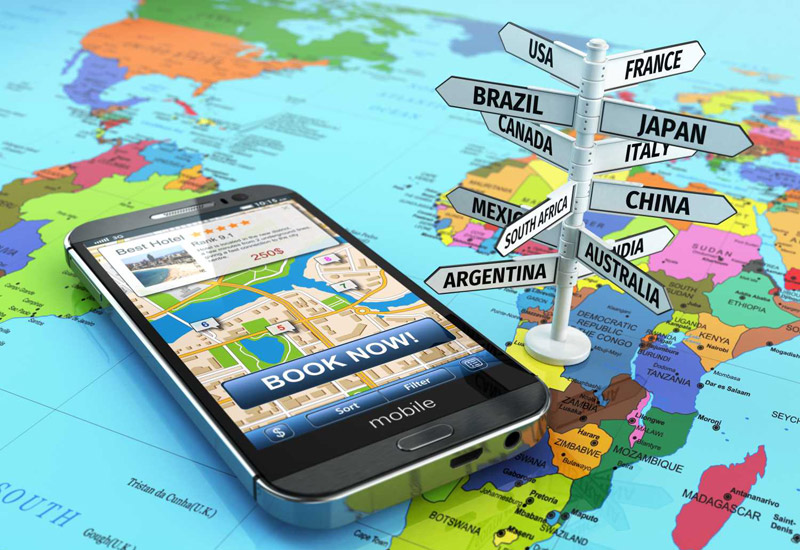“When consumers book on Marriott.com for example, they receive benefits like the company’s best rate guarantee. If consumers find a better rate elsewhere, the company’s best rate guarantee will match it and give them an additional 25% discount. In addition to earning points for their stays, Marriott Rewards members enjoy extra benefits, such as free Wi-Fi and mobile check-in, and special deals only available when booking direct on a Marriott channel.”
“Same day bookings on mobile devices are the new ‘walk in’ business for hotels,” Jones added.
Direct booking he argued, facilitates other benefits for the hotel and the guest: “Hotels can also forge a closer relationship with customers who book direct, allowing for tailored communication and delivery of enhanced, customised guest experience during their stay.” Although here, Maher’s point regarding EPC Conversations has relevance.

| Advertisement |
The new wave for direct booking in the Middle East, however, is a recent increase in third party companies that help hotels to drive traffic to their websites, on an ongoing, rather than campaign basis. Among these companies, FastBooking began operations in Dubai earlier this year, and now has 1,300 independent hotels on a worldwide level signed up.
Talking to Hotelier Middle East during ATM, FastBooking CEO Jean-Luc Chrétien explained how FastBooking works with hotels: “FastBooking helps independent hoteliers sell themselves better on the web. We provide hoteliers with booking engine solutions, channel management solutions, we help them design their websites or do their marketing online.”
The French company was originally founded in 2000, and then acquired by French hotel group Accor in 2015. It now features access to some 4,000 Accor properties, as well as independently operated hotels. According to Chrétien, this strengthens Accor’s own online presence. “Selling online is like stores. The more products your store has, the more chances that you will attract people. Guests will go to Expedia or Booking because there are so many hotels to choose from. Accor has 4,000 hotels. There are places where it doesn’t have any hotels, or many hotels, or the right category,” he explained.
“Between Accor and my marketplace hotels, I have a very good selection of properties. We will increase the number of visitors to our site. If we increase the number of visitors to our site, we will increase the number of reservations, and if we increase the number of reservations, we will bring business to our own properties.”
Chrétien explains that Fastbooking only signs up independent and local hotels to its service. Its only requirement, he adds, is that hotels must have “a rate competitive with OTAs”. While Fastbooking currently has 4,400 properties in its portfolio, the target, Chrétien told Hotelier, is to have a total of 10,000 hotels in two years. “We don’t want to compete with Booking and Expedia, but we want our platform to be the strongest managed by a hotelier,” he concluded.
Other examples include BookLogic, which began collaborating last month with UAE based Première Hotels Group, in order to increase direct booking traffic. Commenting on the new partnership, Première Group, group director of sales and marketing Ismat Huque explained: “As a new player in the market, BookLogic has shown us that it can make significant gains in direct bookings, while helping us optimise the performance of our existing third party channels.”
Triptease, which entered the Middle East market in 2015 also works with hotels to facilitate direct booking. Triptease’s current clients in the region include Atlantis, The Palm in Dubai and HMH Hotel Group, which operates across the GCC. Asked whether these hotels had seen an increase in bookings as a result, Triptease CEO Charlie Osmond described the results as “through the roof”.
“They can establish a direct relationship with the guest, including building anticipation before they arrive and encouraging loyalty after they leave,” Osmond told Hotelier Middle East.
“Direct bookers are more likely to have made an informed, active choice to stay at your property and are usually therefore from your ideal target market, often enjoying and rating their hotel stay higher on average than OTA bookers. Plus of course there’s the high commission rates, which is money many hotels would rather be spending on providing a better experience for their guests,” Osmond added.
Crucially for hoteliers, many of these new companies also provide hotels with guest data, which is often lost to hotels in the OTA relationship. Triptease confirmed that since the booking is driven to the hotel’s own channels, all data passes on straight to the hotel. Similarly, Chrétien from FastBooking told Hotelier: “We communicate all the information about customers. We do not hide email addresses of customers. For an extra fee, hotels can even access our loyalty programme.”









 Search our database of more than 2,700 industry companies
Search our database of more than 2,700 industry companies









